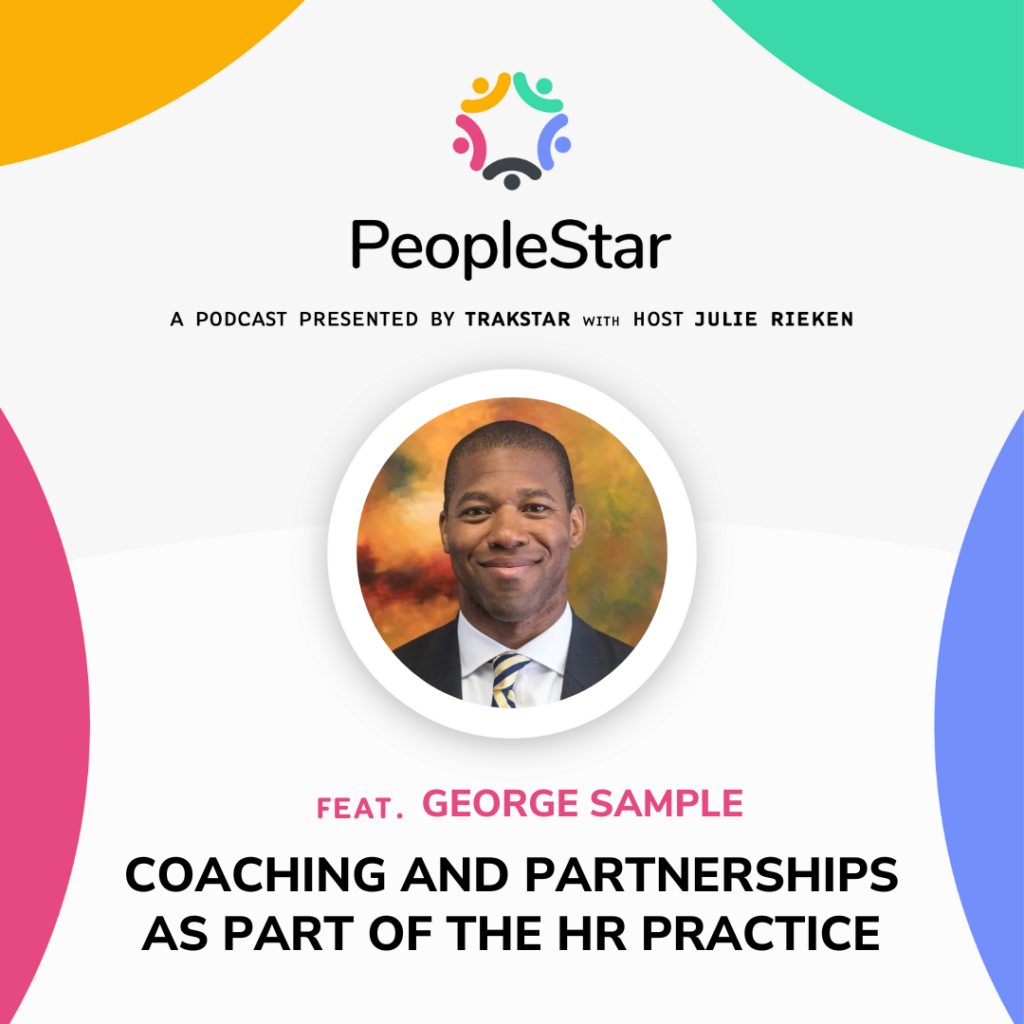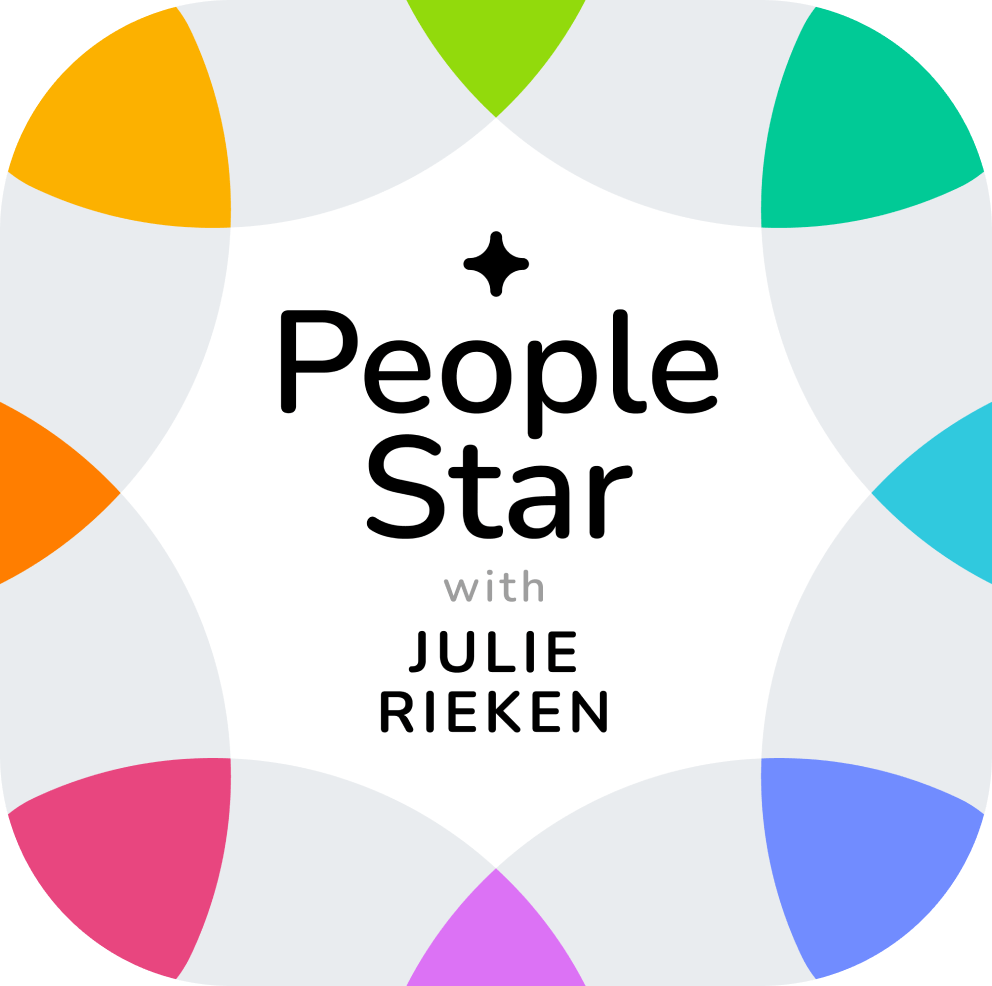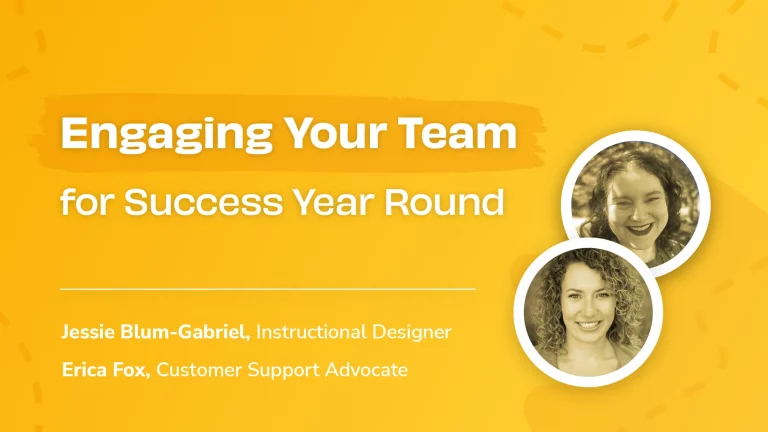PeopleStar_George Sample: this mp3 audio file was automatically transcribed by Sonix with the best speech-to-text algorithms. This transcript may contain errors.
PeopleStar Intro/Outro:
Welcome to the PeopleStar Podcast. We deliver leadership perspectives from industry experts on their people, architecture, routines, and culture as they solve HR's newest challenges. And now your host, Julie Rieken.
Julie Rieken:
Hello podcast listeners, Julie Rieken, host of PeopleStar Podcast and today really Lucky. Got a super dynamic guest in George Sample. George comes from northern Ohio, where he is the vice president at the Federal Reserve Bank of Cleveland, where he leads their strategy and bank performance department. And before that, George served as the director of HR at the Cuyahoga County public library. George, you can correct me on that, on Cuyahoga. As soon as I wrap your intro here and I think we have some really fun things to talk about around HR, starting with George's trajectory on how he got here.
George Sample:
Yeah, Cuyahoga, you got it right. Because even here we have a couple of different pronunciations. So that's one that's within the acceptable bounds of the answer for that one. Yeah, I appreciate the introduction. For me, it's been an interesting journey into this current role. I've had a lot of different roles for different organizations. My undergrad degree was Computer Science here at John Carroll University in Northeast Ohio. With my first organization as a computer programmer, spent seven years doing that. And along that journey, I did a lot of support for HRIS and then in my quote-unquote spare time, did a lot of the HR stuff. So I was involved with our employee resource groups, I was on our United Way committee, I was our coordinator for corporate challenge teams. So I built the network before I knew what intentionally building a network even looked like. And then the opportunity came, they said, hey, you know, our processes, you know our people, you've worked with as well through our HRIS systems, you're very involved in employee resource groups. Would you like to interview for the HR manager position? And for me it was just like, does that come with more money? That sounds cool. So I did that thinking like, I'll be a manager for a couple of years, two or three years, I'll do this and I'll go back to IS. But got into HR and very quickly saw how much impact are you going to have on the organization and on the people, on their individual careers, that's where HR kind of spot. So yeah, that was 2009. So I've been taking the very scenic route back to being a programmer because that was the way past that 2 to 3 year window for sure.
Julie Rieken:
Of course, I love that. Because oftentimes we end up in places that we don't expect in our careers. And sometimes we talk about accidental HR and yours, I think is accidental-accidental, because computer programmer to HR is, I would say, a really different trajectory and a story that I really enjoy because we talk about how do people get here? I love that about you. And I think one of the things that that you maybe dropped a little, a little breadcrumb on in this, in your intro was one of the things that drew you to HR, which was coaching and, and the impact that you could have on people. A, you realize that was something that you were really good at it. In fact, it sounds like it might be one of your superpowers. Can you tell us just a little bit about that part of your strength and how that helped influence your decision to move into HR?
George Sample:
Yeah, because once I started seeing it, HR, from the inside, I very quickly realized that folks have a misconception about how the company sees their career or there's not a line in regards to how most people see their career development versus how organizations see career development. So I started adding value to individuals immediately because I was able to say, hey, no, you should be thinking about it this way over here, as opposed to the way that you're thinking about it. So I started having those questions very often because word got around that George, that the inside scoop in regards to human resources, because I wasn't from there naturally, and I had the quote unquote inside information and it was something I kept on doing more and more. I started reading books in regards to coaching, communications, negotiations, so I got better and better with that. So that's one of the things that over the course of my career I've been able to coach and mentor a lot of folks, especially around careers, because we're in our careers, our careers are such a central part of our identity, so when we're able to connect with someone tangibly in regards to their career, we're able to have a significant impact in their entire life.
Julie Rieken:
Such a good point, and I want to talk about two things around that. I think coaching, it sounds to me in your role at HR, is a really critical part of the strength you bring to the role. And I would imagine that you develop that over time, not only that, you found that when you moved into HR, that that was a strength, but you and I were talking a little bit earlier that you bring, you have some outside experience in coaching too, that, where you've learned some lessons about how to help people, both, why don't I just let you, why don't I let you share the story and some of the learnings that you have? Because I was just genuinely it just, it was just, I was lit up with this story that you told about how you coach, not just at work. Why don't you talk about it?
George Sample:
Yeah. So I also coach for my daughter's soccer, my daughter's, primarily coach our ten year old that I often have the, I have the opportunity right now to coach my 13 year old … indoor team as well. And it's funny, when you talk about corrections and helping people grow and the things they're doing in some of the different mistakes or things you'll see, I've really realized that 95% of the behaviors I will see from these 10 and 13 year old soccer players, they're the same behaviors we see from adults 95% of the time. So I often say now we don't grow up, we just get taller. But it's such a key thing to understand that there are some parts of human nature that's, it's just human nature of it. And for us to be able to invite people into conversations, for us to be able to see what questions can I ask, what resources can I give, what doors can I open for a person to better understand the experience that they're having, it allows me to partner with them and not just bark commandments at them, but I get to coach and partner with them. I often tell my soccer players and as a parallel to the workplace, I was like, I don't kick soccer balls, they don't let me on the field, they won't let me play, so I'm here to give you the guardrails and the guideposts for how you can do this more effectively. It's similar to the teams that I've managed over the past decade plus that I have managed teams. It's, hey, I don't do your work. However, I'm here to give you advice and guardrails in regards to how you can do it quicker, faster, more efficiently, give you a different perspective. And that's such an important thing for us as HR professionals, leaders, and organizations to help people understand what people are, helping them identify where they are in their journey, and then give them the tools and resources for themselves to help grow themselves that next stage of what they want to grow to.
Julie Rieken:
I love that. George, everyone that's listening that's in HR has a coaching conversation today that they've got to have. And every one of us is thinking about how are we going to approach that conversation? It's always something to think through. Can you tell us two things, maybe, maybe let's start with the first thing. When you think about a coaching conversation and walking into it, do you have any stories about any coaching conversations that you've had? And can you just tell us any story about how you approach a coaching conversation? I think it's just going to spark a lot of us into thinking about how we can approach coaching conversations.
George Sample:
Yeah, so for me, when I'm walking into a coaching conversation, I know my job is to provide guidance to that person, but sometimes that person doesn't know what that, what form that value takes. So it's a very … kind of approach for me. So first of all asking, hey, what's that overall impact you going to have on the universe? Because when we're talking to somebody, we're not just talking to a computer programmer, not just talking to another HR professional, we're talking to a human. And when you talk about bringing your whole self to work, we bring our whole selves with us wherever we go. So, …, whatever value it is that we deliver at the workplace, it's somewhat tied to the value we deliver towards anybody who crosses our path towards the universe as a whole. So I always ask the question, hey, what's the impact you want to have on the universe knowing that our careers are a central part of that? Most folks, they haven't heard that question or they haven't really thought about that question. So that's something we'll dive into. Mostly understand that piece. Why is that your impact? Because when things get tough, when things get hard, as they always do, because we're humans, things are going to get challenging. We all have different types of challenges no matter who we are, know, that why we're doing the thing will help us to push through our comfort zones, they'll help us push through when things get challenging, to go towards things. So when I'm having those coach conversations, why do you want that thing? Why do you want to be CEO? Why do you want to be a director? Why do you want to stay in the interim positions? I need to understand for them and they need to understand for themselves why do they really want that thing? Because sometimes people are running scripts in their head that someone else gave to them and they haven't.
Julie Rieken:
That happens in the world. Sorry, I loved that you just said that. It's true. We run scripts. Okay. Sorry to interrupt, that really kicked.
George Sample:
No, we're good. Yeah, we do. When we so often run the scripts like, I'm supposed to do this or I'm supposed to do that, but we have to take the time to really reflect for ourselves, does this feel like the appropriate thing to do? Does this feel like the impact I want to have. So to me, those are the first two questions I start with a coaching conversation. Hey, what's the overall impact you want to have in the universe and why is that? You want to have that impact?
Julie Rieken:
I love that. And sometimes those scripts that we run can last for a lot of years, which means that to your point, we just get taller, but we still haven't reexamined those pieces, even when we get to certain points in our career where we might have anticipated, that we would know that fully. So I love that you can bring that question because it's not just a young person question, it's a forever question.
George Sample:
It's a forever question. I thought the people who are in their forties and fifties and they don't know what they want to be when they grow up, and that's okay, that's okay. We transform ourselves all the time, let's talk about this conversation. I was a computer programmer, I am far away from that now. We transform ourselves all the time. It's better if we can be more thoughtful, intentional, intentional about that. Because if we're not guiding our careers, if we're not guiding our path, then the world will just push us in whatever direction. Since we're navigating this journey for ourselves, let's be thoughtful about this so we can push ourselves in a direction that feels like it feels like it's going to give us the impact we want to have.
Julie Rieken:
So now I want to, I love that. I want to ask you the ultimate question, which is what is the impact you want to have on the universe, George?
George Sample:
Well, I'm prepared for this one.
Julie Rieken:
All right!
George Sample:
Oh, well, that's been plenty time working myself. I want to have a positive impact for as many careers I can have, and that's driven the different roles I've been in, as serving the different nonprofit boards that I've been on. It's why when folks reach out to me, sometimes randomly on LinkedIn, hey, I heard you speak at this conference, I'd love to talk to you about my career, if you can spare me 10 minutes. And like, I have all those conversations because I know for me, my biggest value-add since I first got into HR in 2009 is I want to have positive impacts on careers for as many folks that I possibly can. So Julie, thank you for the opportunity to even come on the show and just be a part of this because this helps me to continually having that impact on the universe that I seek, that.
Julie Rieken:
This has been such a fun conversation. I often say that this is the best part of my week when I get to meet people like you, George. And I love hearing from someone who started because I bet that question of the impact you would want to have on the universe was maybe different when you were a programmer, but you've evolved, as you described over time, into having a positive impact on people's careers. And we all need someone to be that spark. And it sounds like you have really embraced that in your current role, and that is an exciting place for HR to be. George, this has been a super delightful conversation. Thank you for being a guest.
George Sample:
It's been my pleasure.
PeopleStar Intro/Outro:
Thanks for listening to the PeopleStar Podcast. For the show notes, transcript, resources, and more ways to get a seat at the table, visit us at TrakStar.com/Podcast.
Sonix has many features that you’d love including automated subtitles, automatic transcription software, enterprise-grade admin tools, upload many different filetypes, and easily transcribe your Zoom meetings. Try Sonix for free today.




